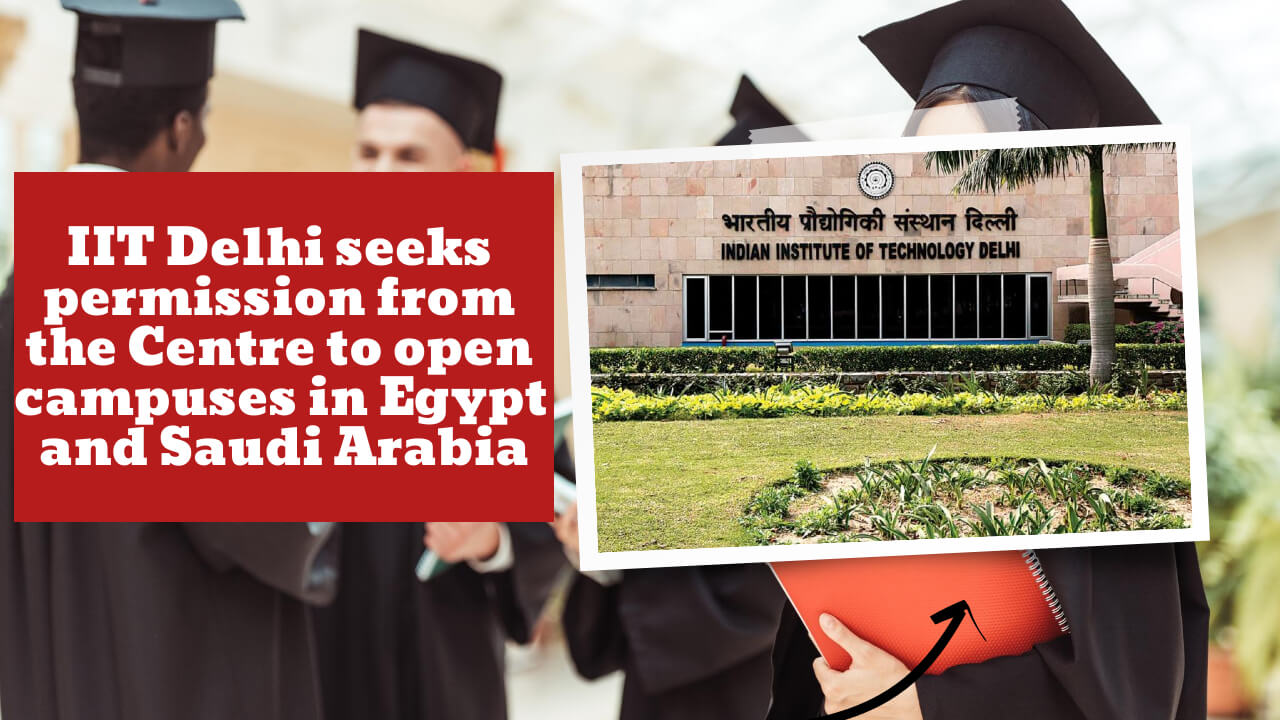The Indian Institute of Technology (IIT) Delhi has applied to the government for permission to open two overseas campuses. Development will bring IIT Delhi closer to Africa and Europe, which will help attract foreign students. IITs’ global rankings have taken a hit due to a lack of internationalization. There has been a proposal in the education ministry for some time now. There will be no subsidy for overseas students and fees will be put on the market. Only one year of the four-year bachelor’s degree in these two campuses can be spent at the Delhi campus.
Key Highlight:
- Indian Institute of Technology (IIT) Delhi has applied to the government for permission to open two overseas campuses
- Development will bring IIT Delhi closer to Africa and Europe, which will help attract foreign students.
- There will be no subsidy for overseas students and fees will be put on the market.
- Only one year of the four-year bachelor’s degree in these two campuses can be spent at the Delhi campus.
- It has been discussed with both countries and will begin construction on the two campuses once the Indian government gives the go-ahead.
- The development will also bring the IIT’S campuses in India, Egypt, and Saudi Arabia closer to African and European students.
Government approval is needed to open two Egypt and Saudi Arabia campuses for the Indian Institute of Technology (IIT Delhi).
It has been discussed with both countries by the IIT Delhi administration. Once the Indian government gives the go-ahead, IIT Delhi will begin construction on the two campuses. According to officials who are familiar with the plans, funding will either come directly from each country’s government or through a dedicated system.
V.Ramgopal Rao, the director of IIT Delhi, confirmed the news. In a statement, he said, “We’re a Government of India institute, and we’ve sought approval from the Union Ministry of Education for the foreign campuses.”
The IIT system will begin a new chapter if this proposal is approved. As a result, IIT Delhi will also be able to become a global education player rather than just a domestic elite school. The development will also bring IIT Delhi’s campuses in India, Egypt, and Saudi Arabia closer to Africa and Europe, which will aid in attracting international students. IITs’ global rankings have suffered as a result of a lack of internationalization.
Engineering and science bachelor’s degrees will be offered at foreign campuses. However, it won’t be referred to as a BTech because the Joint Entrance Examination (JEE) system is required for a BTech from any IIT. A second official, speaking on the condition of anonymity, said that admission to these campuses could be achieved through other global engineering and science entrance exams without compromising the quality standard for which IITs are known.
At the bachelor’s level, each campus of IIT Delhi plans to enroll around 250 students.” According to the second official, “The number of students will gradually increase, and post-graduate and doctoral level courses will be added.” For the last few months, the proposal has been in the hands of the education ministry.
In contrast to those in Delhi, students at overseas campuses will not receive government aid, and their tuition will be marked up to market value. In total, students will be able to spend one year at the Delhi campus during their four years of undergraduate study at these two locations.
Students’ fees paid at the Delhi campus will not be returned to the main campus in Delhi, but the fees received at the foreign campuses will not be returned to the Delhi campus. According to the proposed plan, only one of the four-year fees can be paid at the Delhi campus.
Following a failed attempt to open a campus in Mauritius six years prior due to a lack of government support, IIT Delhi has been exploring ways to broaden its international reach in recent years.
A research academy in Mauritius had been in the works since 2013. Still, the HRD ministry (now the education ministry) questioned the legality of such a move, so it was put on hold. Professor SM Ishtiaque, who was leading the Mauritius project, was brought back by the IIT.
There are several reasons why the year 2021 has a brighter outlook: First, the new education policy encourages Indian institutions to open foreign campuses, and second, Prime Minister Narendra Modi asked IITs to think about expansion “beyond the boundaries” during a function at IIT Guwahati last year.







[…] IIT Delhi is seeking government approval for opening two overseas campuses… […]